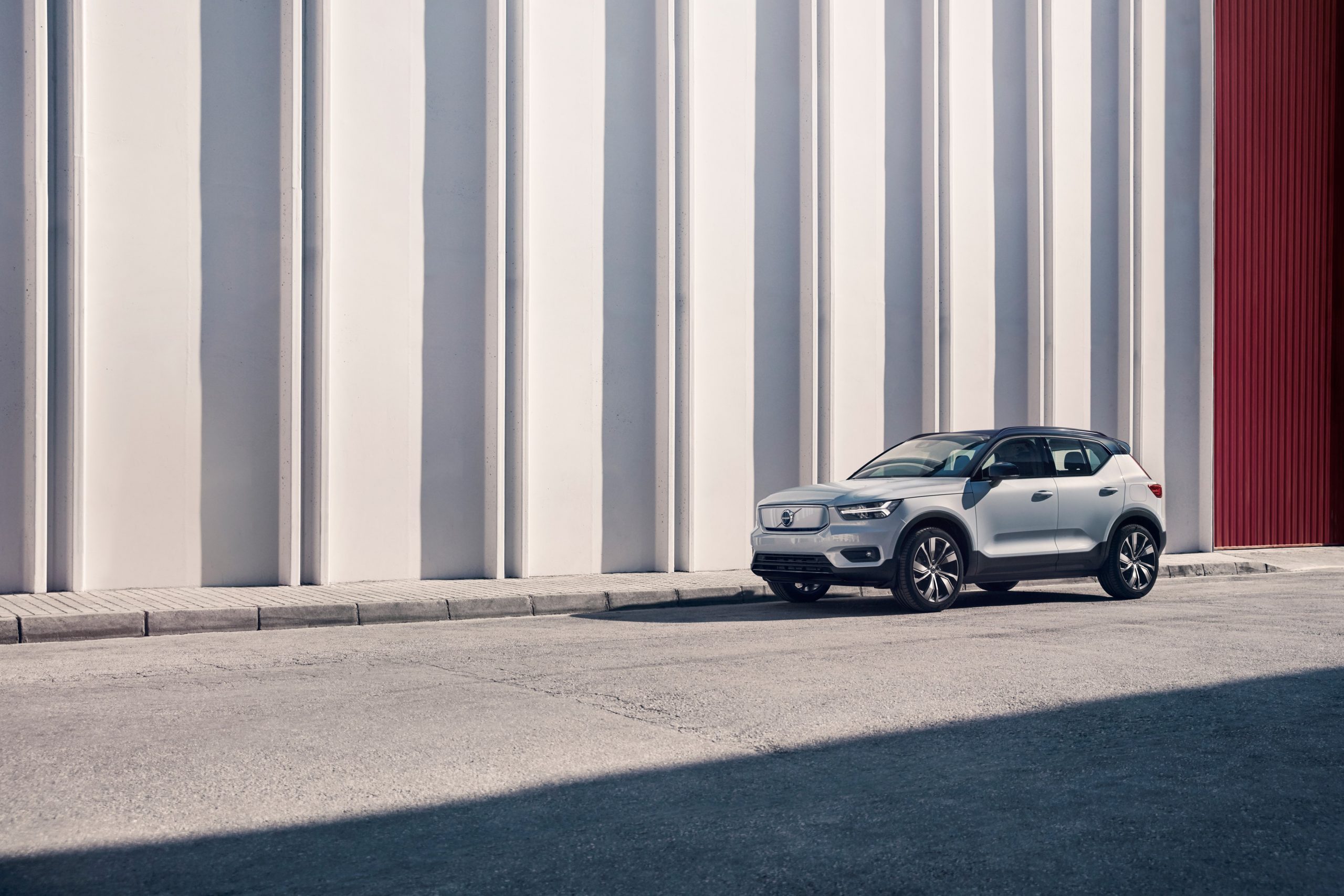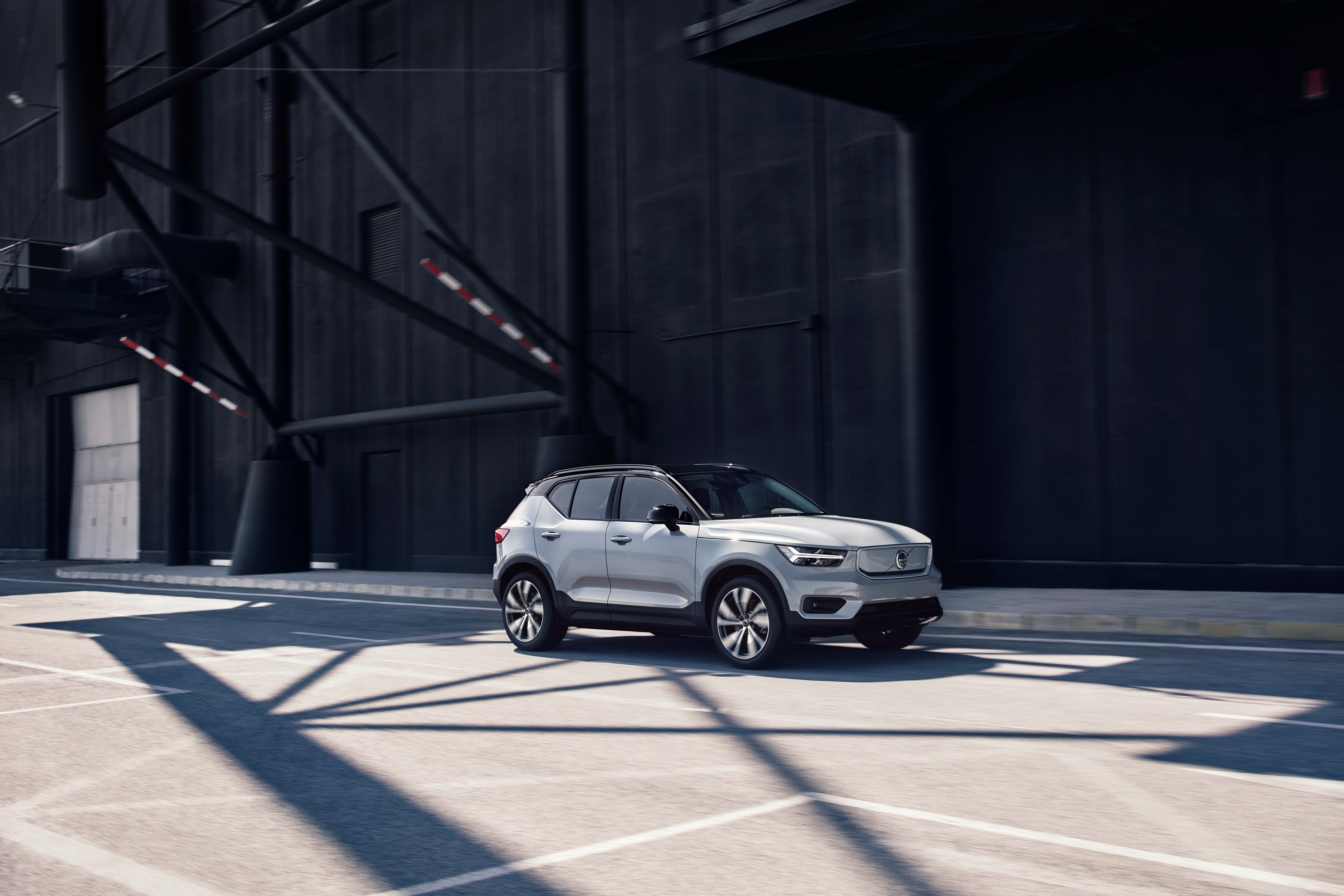What to look for in an eco-friendly car, plus expert tips on deciphering if a vehicle is sustainable
Global sales of electric cars rose by a huge 43% last year - over 3 million models were purchased worldwide.

Global sales of electric cars rose by a huge 43% last year - over 3 million models were purchased worldwide.
If you're searching the Internet for eco-friendly cars, chances are, you're keen to swap your current gas-guzzling model for a more sustainable, planet-positive vehicle.
It's not the simplest of things to shop for, we admit - unlike ethical fashion buys and sustainable beauty picks which are slowly but surely making their way onto our high street, shopping for a sustainable car takes slightly more effort, right?
Not necessarily. Sure, there's a lot of greenwashing in the industry and, sadly, a huge carbon footprint difference if you don't opt for a vehicle - and car manufacturer - consciously making positive change. But there are so many electric car options now and eco-conscious brands really going above and beyond to make sure everything, from product to production process, aren't harming the planet.
Why is it important to opt for an eco-friendly car now? Good question. According to Kristian Elvefors, Managing Director of Volvo Car UK, the automotive industry in general is undergoing a huge shift as it moves towards fully electrified product line-ups. "The engineering and development of battery electric cars is moving at pace, and brands like Volvo are looking at all aspects of the manufacturing and supply chain of its zero-emissions products."
"Sustainability must also go beyond just a zero-emissions car as the end-user product," he shares.
Charlie Atkinson, senior reporter at EV Powered, a publication dedicated to electric vehicles, agrees, sharing that owning an electric car just makes so much sense.
"There are a number of incentives available to help make the transition to an electric car easy," he explains. "Plus, the EU is considering bringing in a deadline for the sale of petrol and diesel cars - the world is moving towards an electric future."
To help you on your journey to living more sustainably, we've spoken to the car experts to really get the inside scoop on what constitutes eco-friendly cars, plus picked their brains for expert tips on deciphering if your current vehicle is eco-friendly.
Marie Claire Newsletter
Celebrity news, beauty, fashion advice, and fascinating features, delivered straight to your inbox!
Eco-friendly cars: Your guide
What constitutes a 'sustainable' car?
Elvefors shares that a sustainable car can be classed as one that is environmentally friendly in all aspects of the materials it's made with, the process in which it is manufactured, and its impact on the environment when in operation, too. "It's recyclability at the end of its life is important, too," he shares.
Atkinson reckons that a sustainable car can be broadly defined as a car that has zero tailpipe emissions. "This means that it doesn’t emit any harmful gases through its exhaust," he explains.
Electric cars depend on an electric battery to power the car, so they don't pump out gases into the air, therefore resulting in zero tailpipe emissions, making the car more sustainable. The lower the carbon footprint, the better.
Best eco-friendly cars: different types
Pure electric
The most sustainable car, according to Atkinson, is a pure electric car, or battery electric vehicle (BEV).
"These are powered purely by charging the car at home or via a public charging station and do not rely on petrol or diesel in any way, hence why they are the most sustainable option," he explains.
Series plug-in hybrids
There are some electric cars which have ‘range extenders’, otherwise known as series plug-in hybrids, according to the car expert. "This means the electric motor powers the wheels, but a petrol generator is also fitted in the car to charge the battery as you drive," he expands.
"While this will give you more miles, you will still be emitting some harmful gases into the air and you’ll also miss out on some of the benefits of owning an all-electric car, such as paying zero tax," he shares.
Plug-in hybrid vehicles
Lastly, there are also plug-in hybrid vehicles (PHEV) which have both a petrol or diesel engine and an electric motor.
"These cars usually travel up to a certain distance or speed using the electric motor before the combustion engine takes over," he highlights.
Do check out our guide to the best electric cars, or our Editor-in-Chief Andrea's take on buying an electric car, while you're here.

When were more sustainable cars first invented and first introduced into the market?
"A battery electric car was first seen in the late 19th century," shares Elvefors, "but we’ve only started seeing the first mass-produced examples in the modern era only in the last fifteen to twenty years."
Can I try an electric car myself?
Certainly. Most car garages will allow you to go for a drive if you pre-schedule appointment, Covid-restrictions permitting.
Atkinson also reccomends heading to the EV Experience Centre in Milton Keynes, if you're curious but not convinced. "It's a great project which allows people to get behind the wheel of an electric car for up to a week and to experience living and owning an electric vehicle, and almost everyone is converted by the end of it," he shares.
"They realise that charging is much more straightforward than they thought, the cars are much quicker off the mark and have so much more instant power than a combustion engine car, plus they know they’re doing their bit for the environment."
Eco-friendly cars benefits: 3 reasons to invest
1. Better for the environment
The biggest benefit of an electric car is - to state the obvious - that it's much better for the environment. "That's one of the biggest motivating factors for anyone considering buying an electric car," shares Atkinson.
2. Government-backed
As touched on above, the government has introduced a ban on the sale of petrol and diesel cars by 2030. "As a result of that, you’re seeing a real acceleration in the number of models coming to market," shares the car expert.
3. Cheaper
Once you get over the fact that electric cars initially seem more expensive, they have 'far far lower running costs', shares Elvefors. "Electric cars have less mechanical parts than international combustion engine versions," he explains. "Plus, recharging an EV costs less in electricity than it does for a tank of fuel."
Not only that, but you'll get to enjoy zero emissions driving, silent and relaxed driving with no engine noise, and perks, such as discounts from certain insurers, no congestion charge and no road tax on 100% battery electric cars, he shares. Not bad.
A short buying guide for eco-friendly cars: 5 tips for buying
1. Track your weekly miles
Elvefors recommends making a weekly log of the number of miles you travel in a period of time - and the type of mileage you're racking up, too. Is it long distance motorway drives, short journeys around town or perhaps a mix of both?
Most electric cars now have huge range and stay charged for around ten to fifteen hours - longer than you'd drive for anyway. "Take the Volvo XC40 Recharge, for example - with a range of up to 259 miles, it'll easily dispel any concerns around range anxiety, especially if you are assessing it versus your current car usage pattern," he shares.
2. Do your research
This one is key. "Research online and checking where your nearest charging points are," advises Elvefors. "You’ll likely be surprised at how many are close by."
He shares that if you have off-street parking, then installing a wall box charger at home will allow you to recharge your car easily. Another top tip: OLEV’s Electric Vehicle Homecharge Grant provides grant funding of up to 75% towards the cost of installing electric vehicle charge points at domestic properties across the UK.
3. Experience an electric car
Again, Atkinson reccomends the EV Experience Centre, calling it 'a great way for you to give an electric car a go before you make the decision to buy one.'
4. Get your head around charging
For longer journeys with an EV, it’s all about planning and deciding where to charge - or if you need to - before you set off, shares Atkinson.
"As an EV owner myself, I very rarely use public chargers as I just charge overnight, however there are the odd occasions when I need to use them. They can take around 40 minutes to charge, depending on your car, but you’ll be surprised as to how quick 40 minutes goes," he shares.
5. Enjoy it
Unfortunately, there are still a few sceptics surrounding electric cars, but both experts share that they're often sceptical about outdated beliefs or skewed facts and figures from the early 2010’s.
Do your research and work out what works for you - both experts reckon there are plenty of eco-friendly cars out there that could be a fit for you.

Ally Head is Marie Claire UK's Senior Health and Sustainability Editor, nine-time marathoner, and Boston Qualifying runner. Day-to-day, she heads up all strategy for her pillars, working across commissioning, features, and e-commerce, reporting on the latest health updates, writing the must-read wellness content, and rounding up the genuinely sustainable and squat-proof gym leggings worth *adding to basket*. She also spearheads the brand's annual Women in Sport covers, interviewing and shooting the likes of Mary Earps, Millie Bright, Daryll Neita, and Lavaia Nielsen. She's won a BSME for her sustainability work, regularly hosts panels and presents for events like the Sustainability Awards, and is a stickler for a strong stat, too, seeing over nine million total impressions on the January 2023 Wellness Issue she oversaw. Follow Ally on Instagram for more or get in touch.
-
 Here's a rundown of The White Lotus cast members who have dated in real life
Here's a rundown of The White Lotus cast members who have dated in real lifeBy Jenny Proudfoot
-
 All the coolest brides are wearing drop-waist wedding dresses this year
All the coolest brides are wearing drop-waist wedding dresses this yearWedding Special Minimalist, nostalgic, and universally flattering
By Clementina Jackson
-
 Anya Hindmarch has just launched a fantastical diving shop in central London
Anya Hindmarch has just launched a fantastical diving shop in central LondonFor those who would rather be beside the seaside...
By Sofia Piza